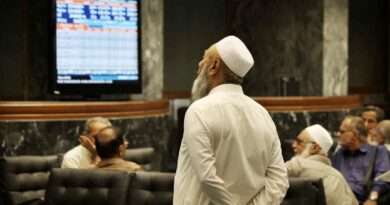Major Pension Reforms Announced for New Public Sector Employees from Next Fiscal Year
|
Getting your Trinity Audio player ready...
|
KARACHI: Significant pension reforms have been introduced, ensuring that public sector employees hired from the next fiscal year onwards will no longer be eligible for state-funded pensions. This announcement was made by Finance Minister Muhammad Aurangzeb during ‘The Future Summit – What Matters Now,’ held on Wednesday.
Key Changes to Pension System
Under the new reforms, future public sector employees will contribute a portion of their monthly salaries to build their own pension funds. This marks a major shift from the current state-funded pension scheme.
Objective of Pension Reforms
The reforms aim to alleviate the financial burden on the government, which currently spends between Rs800 billion and Rs1 trillion annually on pensions, equating to approximately 1% of the GDP for FY25. Aurangzeb highlighted, “Pension expenditure was a big element for the government, we have at least ceased bleeding. Those colleagues who are joining the government from July 1 will be hired on a defined contribution (self-funded pension scheme).”
Addressing Current and Future Pensioners
The minister acknowledged the challenge of managing pensions for existing retirees and those who will join before July 1, 2025. “Stock has remained an issue. We are yet to deal with it,” he noted.
Growth in Workers’ Remittances
Aurangzeb projected a 12% growth in workers’ remittance inflows, with an expectation of $34 billion for the fiscal year 2024-25, compared to $30.25 billion in the previous fiscal year.
Private Sector’s Role in Economic Growth
Aurangzeb emphasized that economic growth and development must be driven by the private sector, particularly in areas where government involvement has diminished. “Forget about the government. It is good for the sectors where the government has ended its role. The private sector has to drive economic growth and development of the country,” he stressed.
Economic Indicators and Future Outlook
Addressing the audience at the 8th annual summit organized by Nutshell, Aurangzeb pointed out the recent reduction in the six-month Kibor (Karachi Inter-Bank Offered Rate), which had become a reference rate for industrialists and businesses. Before the State Bank of Pakistan reduced the key policy rate by 250 basis points to 15%, Kibor was hovering at 13%.
Impact of Reduced Interest Rates
The minister explained, “It is meant banks are making financing available to the private sector at affordable prices. Some of you are actually getting your lending rates and borrowing rates and your borrowing cost now going down into single digit.” He added that the policy rate should continue to decline due to the larger real interest rate at around 8%.
Credit Rating Upgrade
Aurangzeb expressed optimism about a potential upgrade in Pakistan’s credit rating by global agencies such as Moody’s, Fitch, and S&P. He anticipated an improvement to a single ‘B’ category during the current fiscal year, moving up from the current ‘C’ category.
Addressing Population Growth
The minister highlighted the critical issue of population growth, which stands at 2.55%. “This (population) is not the ticking bomb. This is the bomb which has exploded.” He stressed the need for a holistic approach to health, nutrition, family planning, safe water, sanitation, and hygiene, particularly for children under-5 suffering from stunting.
Human Capital and Climate Resilience
Aurangzeb emphasized the importance of addressing human capital and climate resilience concurrently, referencing the government’s efforts towards decarbonization and the aftermath of the devastating floods in 2022.
International Support and Collaboration
At the summit, UAE Consul General Dr. Bakheet Ateeq Al Rumaithi, delivered his speech in Urdu, showcasing Abu Dhabi’s commitment to supporting Pakistan’s economic growth and investment.
Addressing Recurrent Economic Crises
Dr. Reza Baqir, MD of Alvarez & Marsal’s Sovereign Advisory Services and former SBP governor, attributed Pakistan’s recurrent economic crises and repeated reliance on the International Monetary Fund (IMF) to persistent fiscal and current account deficits.
Frequently Asked Questions (FAQs)
1. What are the new pension reforms introduced by the government?
The new pension reforms mandate that public sector employees hired from the next fiscal year onwards will contribute to their own pension funds from their monthly salaries, moving away from the state-funded pension scheme.
2. How will the pension reforms impact the government’s expenditures?
The pension reforms are expected to significantly reduce government expenditures, which currently range between Rs800 billion and Rs1 trillion annually, approximately 1% of GDP for FY25.
3. What is the projected growth in workers’ remittance inflows for FY 2024-25?
Finance Minister Aurangzeb has projected a 12% growth in workers’ remittance inflows, expecting $34 billion in FY 2024-25, compared to $30.25 billion in the previous fiscal year.
4. How will the reduction in interest rates benefit the private sector?
The reduction in interest rates, particularly the six-month Kibor, will make financing more affordable for the private sector, encouraging lending and borrowing at lower costs, which is expected to stimulate economic growth.
5. What measures are being taken to address Pakistan’s population growth issue?
The government is adopting a holistic approach that includes health, nutrition, family planning, safe water, sanitation, and hygiene to manage the population growth rate and its associated challenges




